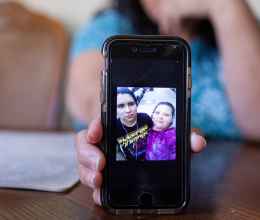
SAN FRANCISCO - A federal judge dismissed claims by former arrestees challenging mandatory DNA testing provisions under Proposition 69 on April 22, 2005. In doing so, Judge Fern Smith of the U.S. District Court agreed with Attorney General Bill Lockyer's position that Proposition 69 will not be applied retroactively to persons arrested before the November 2, 2004 election.
"This decision clarifies and significantly limits the scope of Proposition 69," explained Covington & Burling partner Sonya Winner. "With limited exceptions for only the most serious crimes, DNA testing is not to take place based on a mere arrest until 2009."
"Thousands of people are now shielded from the far reach of this law," said Ricardo D. Garcia, Criminal Justice Director of the ACLU of Southern California. "This is a great victory."
The California affiliates of the ACLU, together with the law firm of Covington & Burling, brought a class action lawsuit on behalf of a number of individuals against the Attorney General in December 2004, challenging Proposition 69's mandatory testing of people merely arrested for felonies and people formerly convicted of felonies who are no longer under the supervision of the criminal justice system.
In January 2005, the Attorney General issued an information bulletin to local law enforcement agencies, asserting that Proposition 69 is not to be enforced retroactively against people arrested before the election, or against people convicted of felonies before the election who are not currently incarcerated or on probation or parole and are not later convicted of a new offense. The Attorney General has assured the court, and the public, that both state and local law enforcement officials are being instructed that the initiative is to be applied only prospectively.
"We will still challenge the constitutionality of mandatory DNA testing of people who are merely arrested once such testing begins," Garcia said. "The Attorney General's current policy may only postpone the issue."





